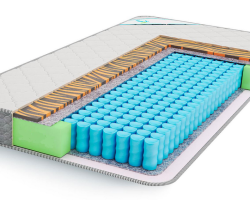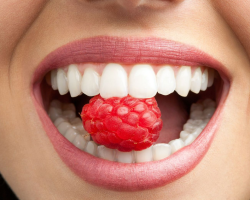What should be nutrition for thyroid diseases? Read more in the article.
Content
- Thyroid gland: why eat right with thyroid diseases - hypothyroidism and hyperthyroidism?
- Hypothyroidism - the necessary and permitted products with autoimmune thyroid diseases in women and men: List
- Hypothyroidism - prohibited products for autoimmune thyroid diseases in women and men: List
- Hyperthyroidism - the necessary and allowed products with autoimmune thyroid diseases in women and men: List
- Hyperthyroidism - prohibited products for autoimmune thyroid diseases in women and men: List
- Video: Nutrition for thyroid diseases. Recommendations Svetlana Fus
- Video: products that damage the thyroid gland. Live healthy!
The thyroid gland in the human body is responsible for regulating metabolism. The deficiency of hormones of this organ causes problems with metabolism, so the diet plays an important role in treatment. Improving metabolism is associated with an increase in the need for iodine additions and thyroid hormones.
Read on our website an article on the topic: "The norm of TSH in women and men after 50 years: meaning". You will find out if TSH is increased in a woman or men after 50 years of age, what to do.
This small organ in the form of a butterfly can cause many problems if you do not monitor its health. Also, with poor health, it is important to immediately consult a specialist, in this case, it will be an endocrinologist. As mentioned above, proper nutrition for thyroid diseases has an important role. How to eat with hypothyroidism and hyperthyroidism? Read more in this article.
Thyroid gland: why eat right with thyroid diseases - hypothyroidism and hyperthyroidism?

The thyroid gland is an outwardly inconspicuous organ. She is relatively small and never hurts. This may create the wrong impression that this organ is not one of those on which the correct functioning of the whole organism depends. In fact, the situation is completely different.
The thyroid gland, developing hormones that regulate the work of the entire human body, undoubtedly plays an extremely important role. Any violations in its functioning have a great influence on the whole organism. In particular, this is known to people who fight various diseases of this organ. The main disorders in the functioning of the thyroid gland include hyperthyroidism and hypothyroidism, as well as diseases that directly occur as a result of these disorders, such as Hashimoto's disease and Graves-Bazedov. Why eat right with hypothyroidism and hyperthyroidism?
- Unfortunately, still few patients are aware of how important the correct diet in the treatment of thyroid diseases is.
- There are certain groups of food that have a great influence on the work of this body, both positive and negative.
- Depending on the type of dysfunction, certain products should be avoided, which can aggravate unpleasant symptoms, and at the same time include products that improve the correct functioning of the organ in their daily diet.
Read more more.
Hypothyroidism - the necessary and permitted products with autoimmune thyroid diseases in women and men: List

Hypothyroidism - This is a disease that is directly related to a deficiency of hormones produced by the thyroid gland, triidotironin and thyroxine. As a result, metabolic processes in the body are significantly slowed down, which in most cases leads to a significant increase in weight, even subject to a low -calorie diet.
The element that is necessary for the correct functioning of the gland is iodine. It is captured and accumulated by the cells of this organ, and then, together with protein amino acids, it becomes the main building block of hormones produced by the thyroid gland. Therefore, in the treatment of hypothyroidism, an extremely important element of therapy is to provide the body with a sufficient amount of iodine with food. Here is a list of necessary and permitted products with this thyroid disease:
- Sea fish - Of course, the best source of iodine, especially the cod, flounder, salmon, polish and mackerel. In addition, seafood, such as mussels and oysters, are very rich in iodine.
- This substance is also contained in other foods - fruits, vegetables, dairy products and grains, but, unfortunately, its concentration depends on the place of cultivation or breeding.
- Food products manufactured in coastal areas, will have a relatively high content of easily digestible iodine. As you move away from the sea, the amount of this element will be proportionally reduced. This is one of the reasons why iodine deficiency in the body is much more common in Russia.
Such large imbalances in iodine supply, depending on the territory of the country, became the main reason for the introduction in 1997. The obligation to iodize cook salt, which in the production process is necessarily enriched with iodide or iodas. A properly balanced diet, which uses a reasonable amount of such salt, will provide healthy people with enough iodine. Unfortunately, in the case of hypothyroidism, iodized salt alone is not enough, and sometimes it is necessary to introduce additives containing synthetic iodine. Some mineral waters are also a source of iodine. Therefore, read the labels on their packaging before buying and choose water with a high concentration of this element.
The diet of people with hypothyroidism should also include products rich in elements such as iron, selenium and zinc. They are responsible for the correct synthesis of thyroid hormones and are part of the receptor proteins of these hormones.
Ground products:
- Meat offal
- Chicken eggs
- Fish
- Some vegetables - spinach, manhold, beets, dill and parsley
- Fruits - currants, raspberries and avocados
- Pumpkin seeds, flax
- Dried fruits
Selenium contains:
- In Brazilian nuts
- Whole grain products
- Sunflower seeds
- Fish, especially tuna
- Bird
Zinc can be found in such food:
- Meat
- Eggs (source of easily digestible zinc)
- Wheat and bran sprouts
- Chickpeas
- Pumpkin
- Sunflower seeds
- Oysters
As you can see, there are many food products that are allowed with this disease. Which are prohibited for use? Read further.
Hypothyroidism - prohibited products for autoimmune thyroid diseases in women and men: List

There is a list of products that must be avoided with hypothyroidism. We are talking about vegetables of the cruciferous family, which include:
- Cabbage
- Cauliflower
- Broccoli
- Brussels sprouts
- Kohlrabi
- Radish
- Turnip
These plants contain in their chemical composition goytrohens. They prevent the proper absorption of iodine into the bloodstream, which largely contributes to a violation of the production of thyroid hormones and causes thyroid hypertrophy. The negative effects of vegetables of the cruciferous family can be slightly reduced if the vegetables are subjected to heat treatment before use. Cooking reduces the content of goothrogen in food approximately 30%.
With hypothyroidism, especially in the presence of hashimoto disease, very often constipation and discomfort in the field of digestion occur, therefore it is equally important to provide the body with a large number of dietary fibers. Their rich source - vegetables and fruit, as well as whole grain products - cereals, bread, etc..
Hyperthyroidism - the necessary and allowed products with autoimmune thyroid diseases in women and men: List

Too high the production of thyroid hormones leads directly to the hyperactivity of this organ. The main symptoms accompanying this disorder include a sudden weight loss. All this, despite the supply of the body with a sufficient number of calories. The patient also loses weight as a result of accelerated metabolism. Other symptoms of hyperthyroidism:
- Cardiopalmus
- Dyspnea
- Frequent muscle contractions and hands trembling
- Bulging eyes
- General fatigue and body weakness
- Insomnia
- Irregular menstruation in women
Increased metabolism causes an increased body need for all nutrients necessary for its proper functioning. Therefore, the menu for hyperthyroidism should be varied and balanced to provide the body with all the necessary vitamins and minerals.
To satisfy the increased need for vitamin a, you need to eat a large number:
- Carrots
- Pepper
- Tomatoes
- Persian
You need to take care of providing the body with enough vitamin C.whose rich sources are:
- Citrus
- Black currant
- Parsley
- Red pepper
- Pickled products
Vitamin B1 sufficient quantities are contained in such products:
- Whole grain cereals
- Fish
- Eggs
- Nuts
In order to minimize this ailment effectively, you should love and regularly eat such food as tomatoes, potatoes, bananas, avocados, raisins, dried figs and apricots, as well as buckwheat. All these products contain a large amount of potassium - an element that is responsible for the correct redness of the muscles and prevent unpleasant seizures. However, by analogy with a diet with hypothyroidism, products from the cabinet family should be avoided, since they lead to an increase in the so -called goiter, the formation of which is caused by the growth and swelling of the thyroid gland. Read more about prohibited food products below. Read further.
Hyperthyroidism - prohibited products for autoimmune thyroid diseases in women and men: List

In order not to aggravate the problem of hypertension, which often accompanies hyperthyroidism, it is necessary to limit the use of salt and drinks with caffeine - coffee, tea and any energy cocktails. The exclusion of coffee from the menu will certainly bring relief with persistent spasms in the muscles and vessels of the head. People with hyperthyroidism should necessarily avoid drinking alcohol.
It is worth emphasizing that proper nutrition may be extremely useful in the treatment of thyroid diseases. In addition, a balanced menu, with the content of vegetables and fruits, will also bring many additional health benefits, such as strengthening immunity or improving concentration. So, you should revise the food habits and change them, and problems with the thyroid gland in a short time will become less pronounced, and will not cause much anxiety. Good luck!
Video: Nutrition for thyroid diseases. Recommendations Svetlana Fus
Video: products that damage the thyroid gland. Live healthy!
Read on the topic:







